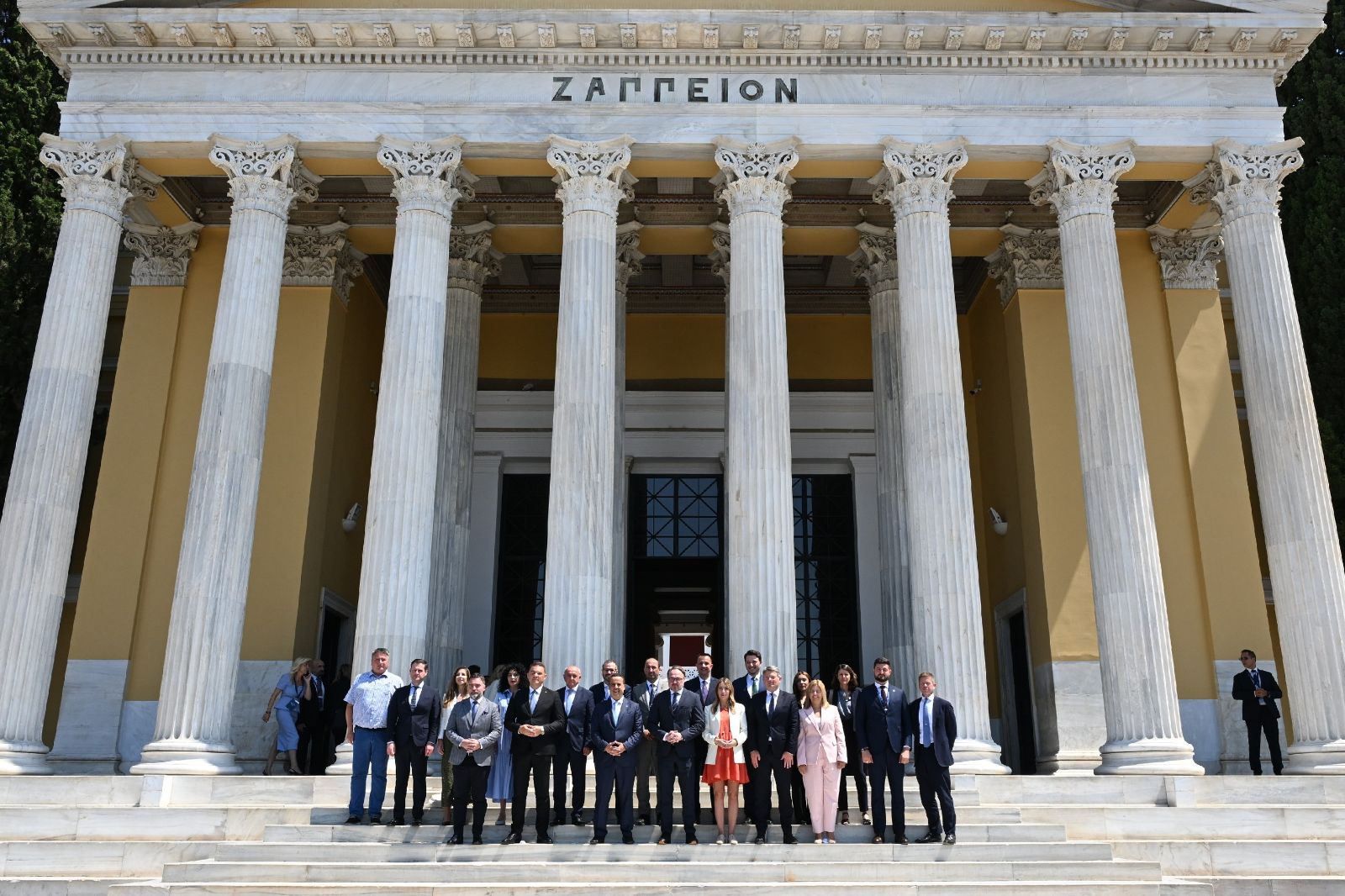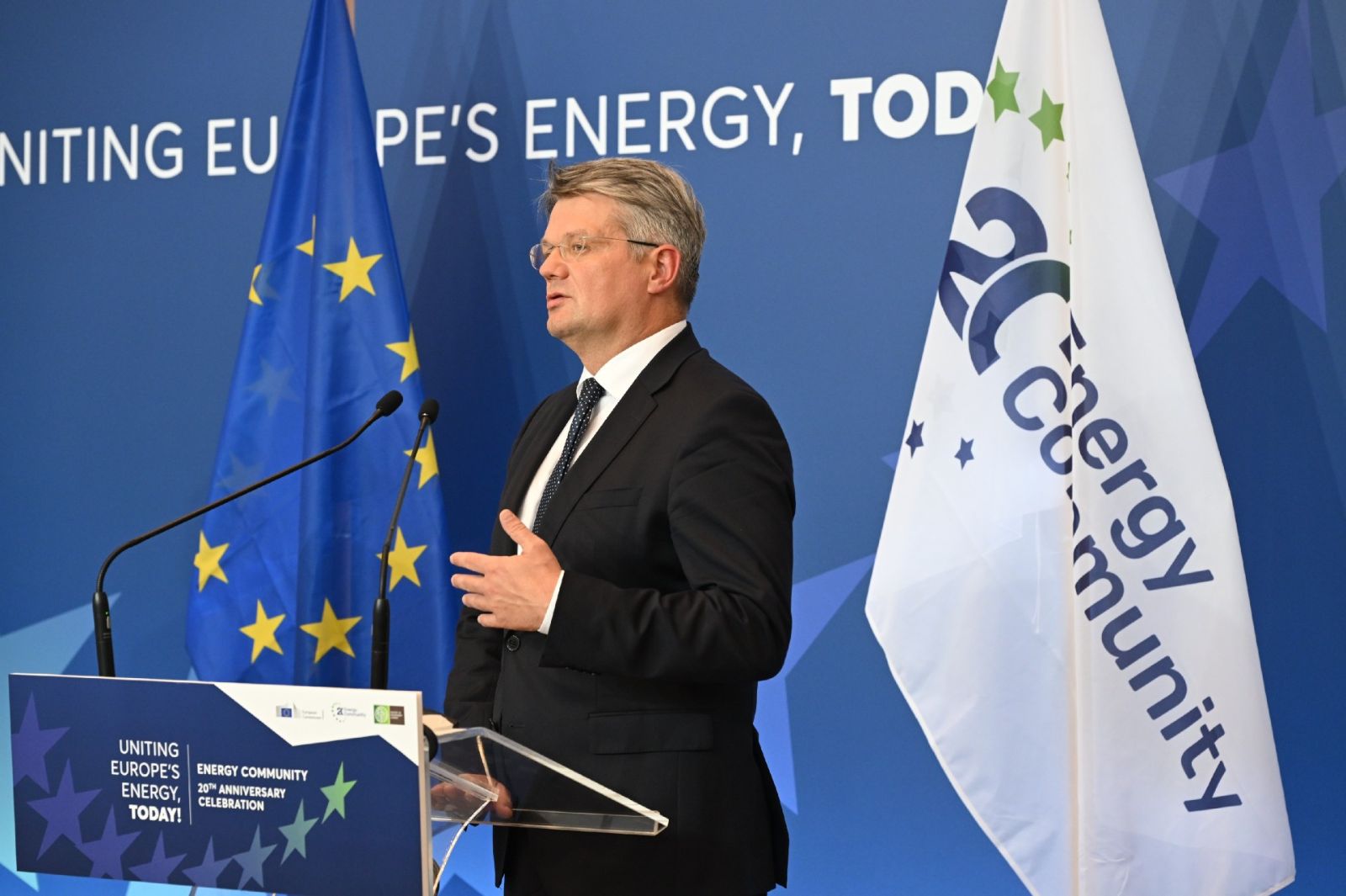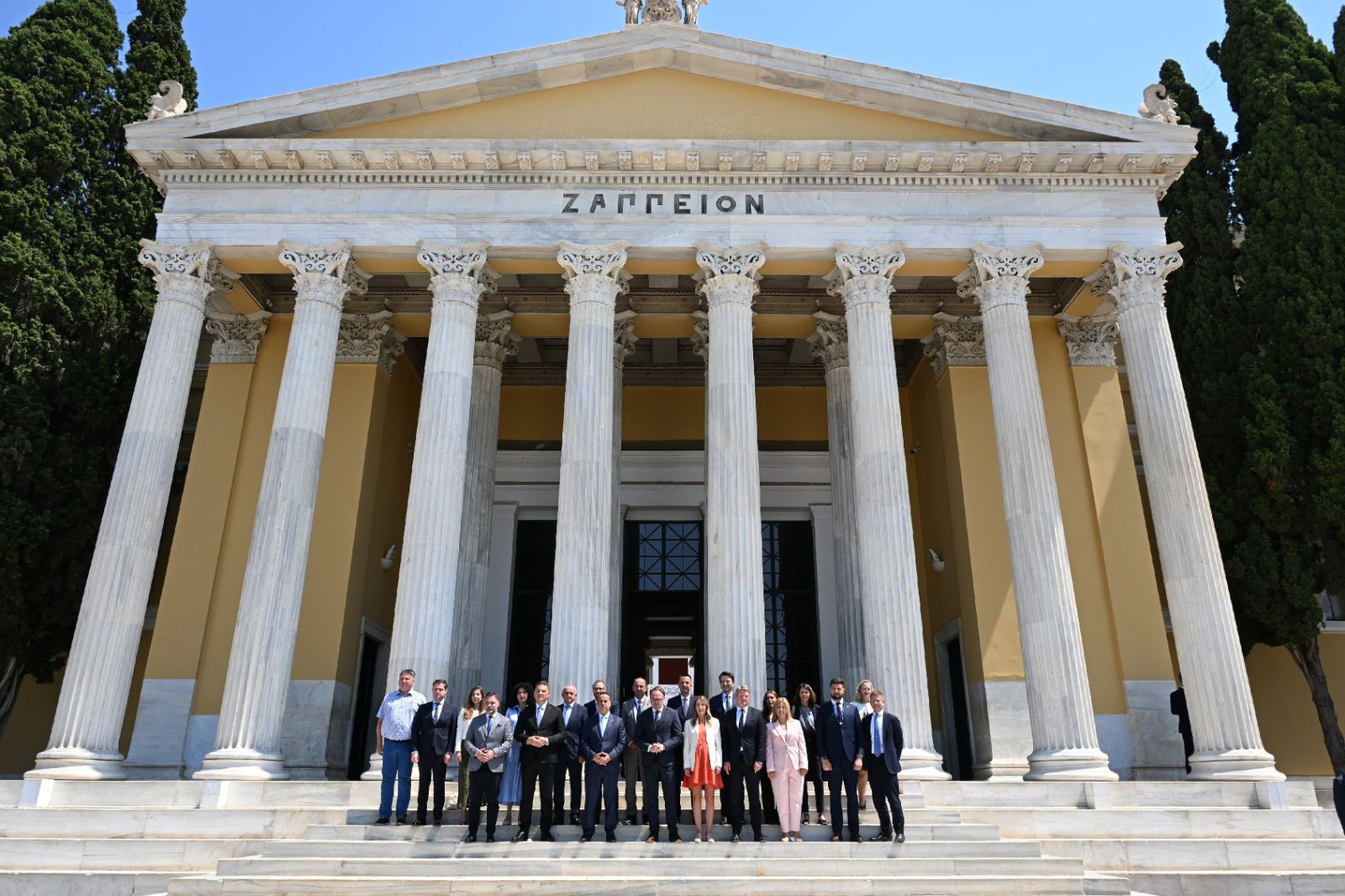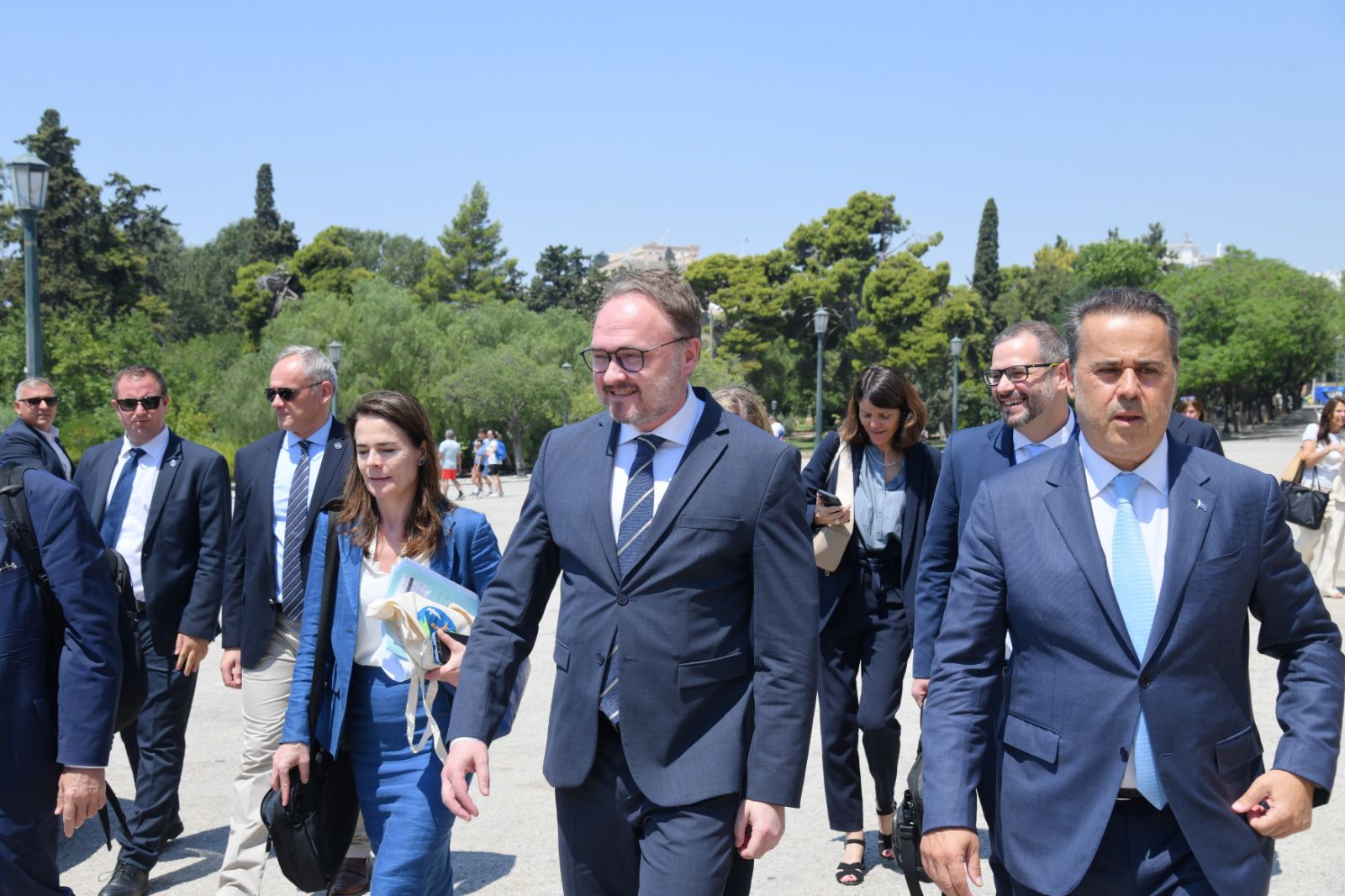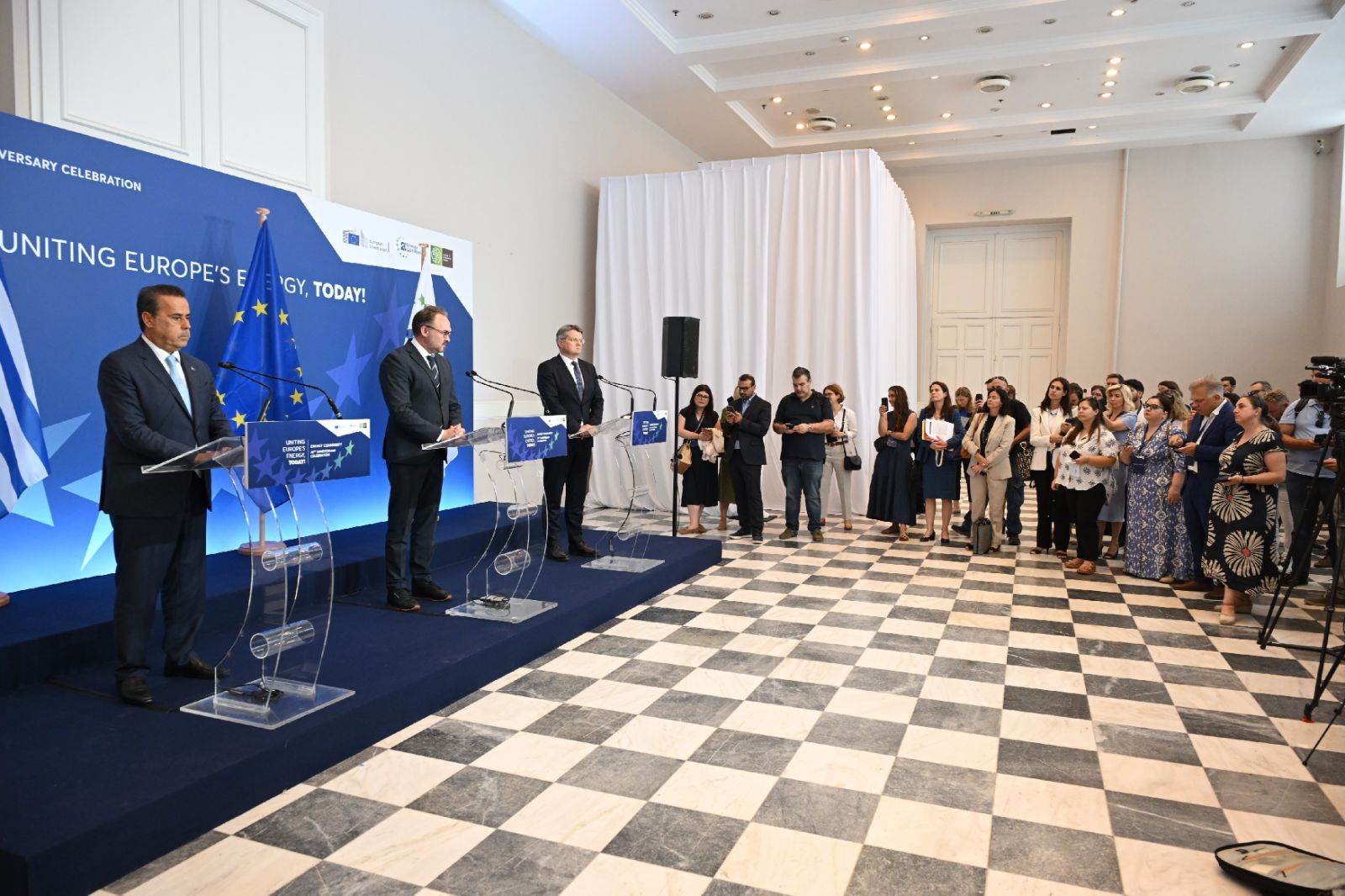
Ministers call for accelerated integration with EU Energy Market and Climate Alignment On 20-Year Energy Community Anniversary
Ministers from the Energy Community Contracting Parties gathered today at the Informal Ministerial Council in Athens to mark the 20th anniversary of the Energy Community.
The Energy Community Treaty establishing the Energy Community was signed in Athens in 2005. Its purpose remains to create a more integrated market, attract investment and speed up decarbonisation by aligning with EU rules on energy, environment and competitiveness.
Alignment continues to be a cornerstone in the progress towards EU enlargement. In recent years, close cooperation has enabled Contracting Parties to strengthen security of supply, particularly against the backdrop of the ongoing Russian war in Ukraine. During this 20th anniversary event and Informal Ministerial Council, hosted by the Greek Ministry of Energy and the Environment, the Ministers of the Energy Community Contracting Parties underlined the need for an accelerated integration with the EU, grounded in delivering a secure, resilient energy transition.
“Over the past two decades, the Energy Community has brought the EU closer to its neighbours, pioneering the extension of the EU energy market beyond borders, promoting integration, reforms and investments across the region. Now, it is time to look ahead at our shared future based on a greener, sustainable and resilient system which will bring cheaper energy and more security to all,” said Dan Jørgensen, European Commissioner for Energy and Housing.
"I am very optimistic after the first session of the meeting because all the contracting parties expressed commitment, a strong commitment about market coupling,” affirmed Stavros Papastavrou, Greek Minister for the Environment and Energy. There is a lot of work to be done in terms of electricity, a sector which is complex, technical in complex, everything regulated and constantly changing. But this is the time for our region to catch up and bridge the gap for the prosperity of our citizens and for the entire region."
2027 Market Coupling in Sight as Reform Milestones Near Completion
Nearly two decades after laying the foundations for regional cooperation, Contracting Parties are now approaching a major milestone: full integration with the EU electricity market. Many are close to completing the reforms needed to launch the 18-month countdown to coupling—including full legal alignment under the Energy Community’s Electricity Integration Package and the appointment of Nominated Electricity Market Operators. If transposition is verified as compliant by the European Commission and the Secretariat, coupling with the EU’s Single Day-Ahead and Intraday Markets (SDAC and SIDC) will be initiated.
During the Council, Ministers made a breakthrough in regional coordination, backing a proposal by EU Transmission System Operators to revise Capacity Calculation Regions, now under review by the EU energy regulator ACER. Recognising the proposal's importance for an effective operation of the interconnected grid, they called for swift follow-up — including the operationalisation of Regional Coordination Centres and System Operation Regions. These steps aim to improve electricity flows and grid security, especially along the north–south corridor of the Balkans, while laying the groundwork for full EU market coupling.
Decarbonisation Must Accelerate Ahead of CBAM Implementation in 2026
To avoid disruptions to regional electricity trade, including between affected EU Member States, clarifying CBAM rules for electricity is a priority for the Ministers. As no Energy Community Contracting Party is expected to meet the exemption criteria by 1 January 2026, a proportionate and context-sensitive application of the mechanism is essential, as supported by active engagement in the European Commission’s ongoing call for evidence that precedes the future amendments of the CBAM regulation to be possibly proposed by the European Commission.
Beyond technical readiness, full market integration hinges on credible climate action. Contracting Parties must align with EU climate standards to maintain long-term access to the EU market, making electricity market integration a key driver of regional decarbonisation. The Energy Community Secretariat committed to continued and active support to the ministries in establishing credible carbon pricing systems, underpinned by operational MRVA frameworks. Options for coordinating carbon pricing to reduce trade distortions, prevent carbon leakage, and ensure fair competition will be further explored, with a view to facilitating a gradual alignment with the EU Emissions Trading System (EU ETS).
“Electricity market integration and decarbonisation are two sides of the same coin,” affirmed Artur Lorkowski, Director of the Energy Community Secretariat. “The green energy transition unlocks meaningful integration with the EU market — and vice versa. Only by aligning policy, infrastructure, and pricing can Contracting Parties fully realise the benefits of clean, secure, and affordable energy.”
Ministers further called for carbon revenues to support vulnerable communities and mobilise investment in clean energy—stressing that just transition financing must go hand in hand with policy reforms to ensure public trust and fairness.
Finally, in a dedicated session on Central and South-Eastern Europe Energy Connectivity (CESEC) ministers discussed how to realise common priorities in regional cooperation. The CESEC High-Level Group coordinates efforts to facilitate cross-border and trans-European energy infrastructure projects in central-eastern and south-eastern Europe. It unites both EU Member States and Energy Community Contracting Parties.

